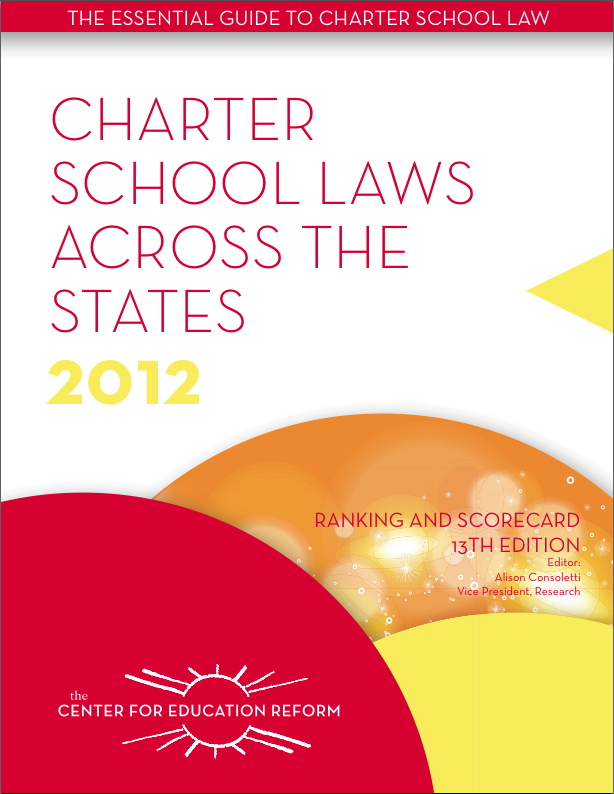The Essential Guide to Charter School Law provides path to excellence
CER Press Release
Washington, DC
April 2, 2012
The wide variations in charter school laws state by state average out to a grade in need of improvement, according to The Essential Guide to Charter School Law by the Center for Education Reform. In its 13th annual analysis of laws across the states, CER, the leading advocate for substantive and structural change in US education, documents the conditions for effective laws that support the growth and success of these proven models of public schooling.
“Charter schools — public schools, open by choice, accountable for results and free from most rules and regulations that stifle progress in traditional schools — are permitted in 41 states and the District of Columbia, and yet the conditions for success in those states compromise the availability of great new public schools that parents and students most need and deserve,” said CER President Jeanne Allen. “While some state laws are still as great as intended when they were created, many states, just like schools that complain they are forced to ‘teach to the test’ rather than deliver exceptional education, have just gone through the motions, passing laws that give very little life to charter school reforms.”
The 2012 report analyzes each law against nationally recognized benchmarks that most closely dictate the impact of charter school policies on healthy, sustainable charter schools. Components such as the creation of multiple independent authorizers and fiscal equity can transform a state’s educational culture. States that do so include Washington, DC, Minnesota and Indiana.













